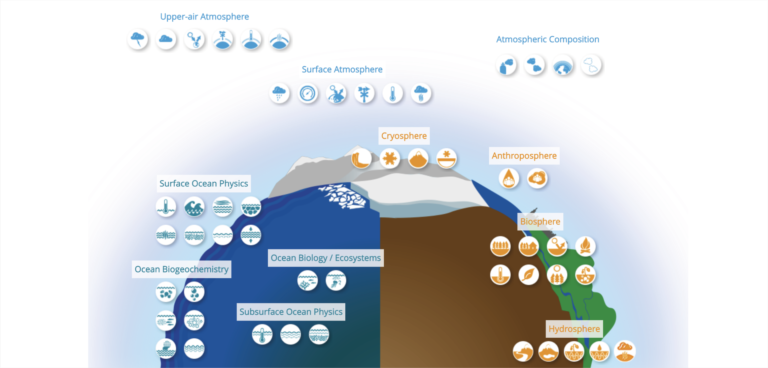A new report from the Global Climate Observing System (GCOS) has stressed the importance of high-priority actions to gather essential information on the climate system and improve monitoring and understanding of how it is changing.
According to the WMO, climate observations have unequivocally shown that human-induced climate change is occurring and have informed the projections needed to successfully adapt to climate change and reduce greenhouse gas emissions.
Prof. Petteri Taalas, secretary-general of the WMO, one of the co-sponsors of GCOS, said, “All successful actions to adapt to or mitigate climate change must be based on sound, accurate information that can only be provided by a global climate observing system. Planning for and mitigating the impacts of climate change, predicting and understanding future risks, and protecting vulnerable populations and infrastructures all require global information on the changing climate.
“Global climate monitoring needs to cover the entire Earth system from the atmosphere to the oceans, from the cryosphere to the biosphere, and encompassing the water cycle and energy and greenhouse gas budgets.”
GCOS regularly produces status reports, which assess the progress and unmet requirements in the climate observing system, followed by implementation plans that propose actions for its improvement. The 2022 GCOS Implementation Plan provides critical input to the United Nations Framework Convention on Climate Change (UNFCCC) and will be presented to the UN climate change negotiations, COP27, in November.
GCOS collects and documents the data needed for monitoring the climate system and assessing the impacts of climate variability and change, using satellite and in-situ ocean, atmosphere and land observations. It monitors 54 ‘essential climate variables’ that are used to characterize Earth’s climate (including the atmosphere, biosphere, ocean, hydrosphere and cryosphere). These observations inform the WMO’s annual State of the Global Climate reports and feed into the Intergovernmental Panel on Climate Change assessments, in addition to supporting the UNFCCC process.
The 2021 GCOS Status Report, released last year, identified the successes and gaps in the existing observing systems. The 2022 GCOS Implementation Plan presents the major practical actions that should be undertaken in the next 5-10 years to address these gaps. It identifies six major themes that should be addressed:
- Ensuring sustainability. Sustained funding is essential to ensure the continuity and expansion needed for many observations of essential climate variables. Many observations are supported through short-term funding, leaving the development of long-term records extremely vulnerable. Satellite observations have been a major success in monitoring many ECVs, but the long-term continuity of some satellite observations is not guaranteed.
- Filling data gaps. There are big gaps for many in-situ observations over parts of Africa, South America and Southeast Asia, and in the deep ocean and polar regions. There has been no improvement since the last GCOS status report in 2015.
- Improving data quality, availability and utility. Many climate observations are currently underexploited because of the lack of consistency in their processing and usability. Further effort is required to ensure data can be readily used in reanalysis and is fit for purpose.
- Managing data. To address and understand climate change, the longest-possible time series need to be preserved and made available in perpetuity. All climate variables need sustainable global data repositories with free and open access to data. Data rescue from hard copy or archaic digital formats allows data series to be extended and needs to be adequately planned and funded, with the results openly and freely available.
- Engaging with countries. Many climate observations are made by national bodies, which need support and regional and global coordination. The benefits of climate observations need to be widely understood and the contributions of national observations to global datasets enhanced.
- Emerging needs. Stakeholder needs are evolving. GCOS expert panels have already identified several areas where emerging needs arising from response measures such as adaptation and mitigation need to be addressed in the short term. GCOS is looking at how observations more generally can support adaptation.
Prof. Peter Thorne, chair of the GCOS Atmospheric Observation Panel for Climate, said, “There is an ongoing need to understand the changing climate system. At a fundamental level, what we do not observe we cannot understand, and what we cannot understand we cannot predict, adapt to and mitigate. It is necessary to observe, on a sustained basis, key facets of the climate system, in order to monitor and understand the changing climate.”
The Global Climate Observing System program is co-sponsored by WMO, the Intergovernmental Oceanographic Commission of UNESCO, the United Nations Environment Programme (UNEP) and the International Science Council (ISC).
To read the 2022 GCOS Implementation Plan, click here.



